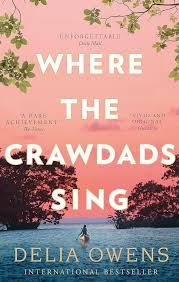31. A Book
byA Book came into Kya Clark’s life in 1968, marking a significant turning point in her journey as she entered her twenty-second year. This new chapter in her life was brought about by the publication of The Sea Shells of the Eastern Seaboard, a project that had taken years of dedication and careful study. Kya’s meticulous collection of shells from the beaches of North Carolina, accompanied by her artistic paintings, had culminated in a work that would bring her recognition and success she had long lived without. The book, more than just a collection of her artwork, was a testament to her perseverance, and it helped her break free from the confines of isolation she had known for most of her life. The financial reward from her royalties, amounting to five thousand dollars, allowed her to make significant improvements to her humble shack, providing modern amenities such as running water, a bathroom, and electricity. While these updates brought a new sense of comfort and convenience, they were carefully incorporated to preserve the shack’s original charm, maintaining a delicate balance between progress and nostalgia.
Simultaneously, however, Kya faced the looming threat of development encroaching on the beauty of the marshlands she had called home for so long. The marsh, once considered little more than a “murky swamp,” was now in danger of being transformed into commercial property by developers eager to cash in on its potential. The clash between nature and commercial interests illustrated a deep divide between those who valued the marsh for its untouched beauty and those who saw it only as a means to make money. Faced with the very real risk of losing her sanctuary, Kya made the difficult decision to secure the deed to her land, taking control of her future for a fraction of the price she feared she might eventually have to pay. This decision wasn’t merely about property rights; it was about preserving her connection to the land that had shaped her identity. Kya’s purchase of the land was a declaration of independence, a statement of her desire to protect the place that had provided her with so much solace and understanding over the years.
While Kya’s newfound success with her book and her land acquisition brought her some measure of stability, her emotional journey was far more complex. The arrival of a letter from Tate, a man who had once played a central role in Kya’s life, reopened old wounds and unresolved feelings. When Kya and Tate finally met, the exchange was polite but emotionally charged, hinting at the deeper, unspoken tensions between them. Their conversation was mostly centered around her book and their brief, formal interactions, but beneath the surface, it was clear that much had been left unsaid between them. The passage of time had caused a rift, and although Kya was still cautious, there was a subtle longing to reconnect, to make sense of their past. As Tate reentered Kya’s life, she was forced to confront the complexities of love, betrayal, and the memories that had shaped her. While they talked about the book and her success, there was an undeniable undercurrent of regret and uncertainty, leaving Kya torn between her new sense of autonomy and the emotional baggage that came with her past relationships.
As the story unfolds, Kya’s transformation from a girl who once lived in isolation and survival mode to a woman with newfound independence is laid bare. The contrast between her success as an author and her ongoing struggles with love and connection illustrates the profound complexity of her journey. While she begins to navigate her new life, the unresolved emotions surrounding her past relationships, especially with Tate, continue to challenge her. Kya’s connection to the marshlands remains the constant in her life, offering both solace and a sense of identity, but as she steps further into the wider world, she must confront the inevitability of change. The tension between holding on to the past and moving forward into a new life defines Kya’s journey. The unfolding narrative of her growth speaks to the broader human experience of reconciling one’s past with one’s present, and the courage it takes to embrace change while remaining grounded in what makes us who we are. Kya’s story, rich with moments of personal triumph and painful reflection, encapsulates the delicate process of self-discovery and the profound impact of the environment and relationships on shaping our identities.


